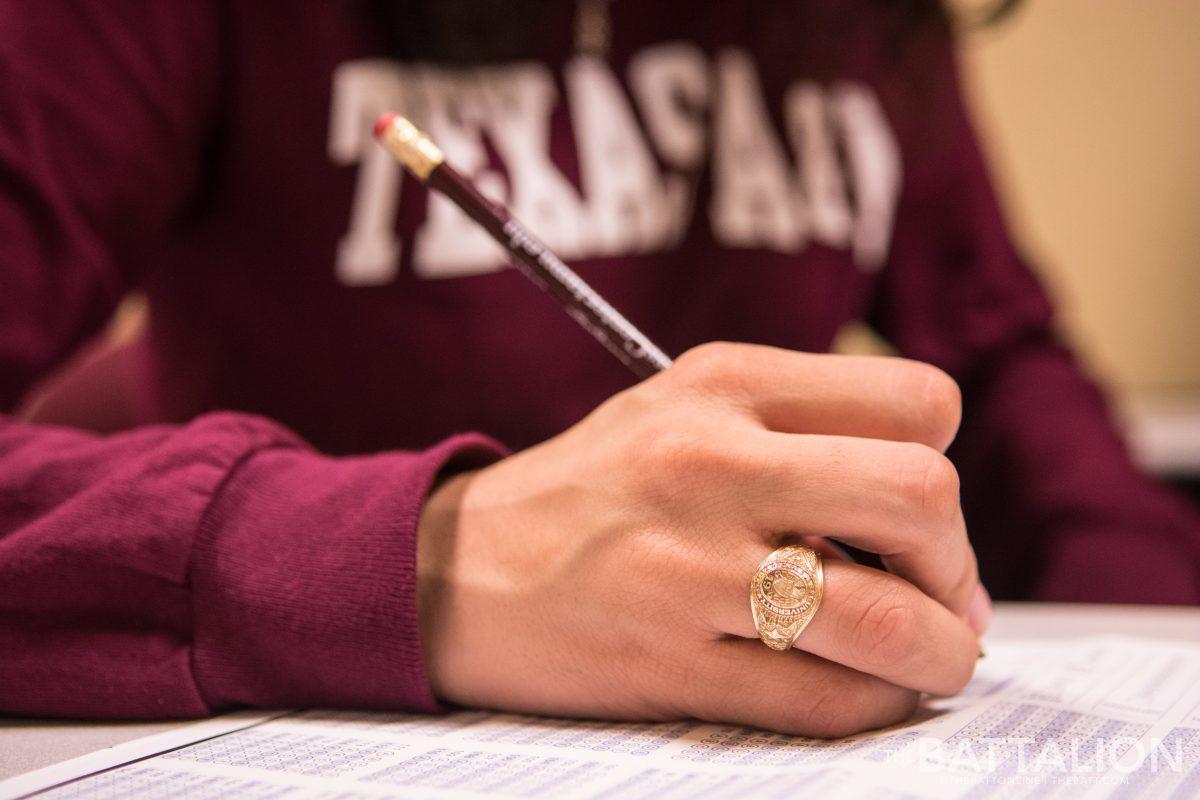Advocating for loyalty and truth, “An Aggie does not lie, cheat, or steal, or tolerate those who do” is often written on exams, posted in classrooms and recited by students throughout campus.
The Aggie Code of Honor is one of the first things new students learn upon their arrival to Texas A&M. Still, students often find gray areas regarding what does and does not count as cheating. Friday is the last day of Aggie Honor Week, which included a series of workshops, presentation and opportunities for students to learn more about the importance of academic integrity.
A&M defines “Academic Misconduct” in nine different ways, all of which have specific definitions and clarifications. According to the official list of rules and procedures in the Aggie Honor System Office, misconduct can be committed in a number of different ways.
“Misconduct in research or scholarship includes fabrication, falsification or plagiarism in proposing, performing, reviewing or reporting research,” the AHSO website states. “It does not include honest error or honest differences in interpretations or judgments of data.”
Located on the sixth floor of Rudder Tower, the Aggie Honor System Office was established in 2004 to administer the Texas A&M University Honor System. The office oversees the Honor Council, a group of students and staff who hear and rule on honor cases.
“[The office] is responsible for educating the university about the Aggie Code of Honor and [facilitating] the processes established to address allegations of academic misconduct made by students and staff,” AHSO director Timothy Powers said.
Powers said A&M’s reported cases of academic misconduct are consistent with other universities of similar size.
“Last year we received around 700 reports that we addressed,” Powers said. “Two years ago, our numbers were 800. So, we’ve had 100 fewer cases. These numbers are consistent with our peers from other [Association of American Universities] and [Southeastern Conference] institutions.”
Political science sophomore Yadiel Solis said because of the immense pressure students face to make good grades, cheating will not always be off the table for some students.
“There are a lot of resources that allow for academic dishonesty,” Solis said. “Students also understand the effects that bad grades have on their future, so of course some may turn to cheating because of that enormous weight on their shoulders.”
The university is exploring new ways to educate students about what counts as academic dishonesty. Recently, the AHSO has had large signs placed around campus detailing the “9 Definitions of Academic Misconduct.”
Powers said these signs are not causative or indicative of spikes in academic misconduct. Contrarily, the signs are part of preventative measures being taken by the AHSO to educate students.
“The main thing that prompted those signs is that we recognize that we need to be more proactive in educating students about what academic misconduct is,” Powers said. “Our staff had those posters created and worked with departments to have them put in buildings around campus.”
Chemistry senior and student-worker for the organic chemistry lab program Keiani Smith said although occasional incidents occur, students typically do not cheat — due in part to the severity of punishment.
“Every now and then, a TA will comment that two lab reports look the same, but I don’t think a lot of cheating happens,” Smith said. “I think most people do their work. Whether it be good or bad, they take care of it.”
Honor system office emphasizes academic integrity
October 12, 2018
Donate to The Battalion
Your donation will support the student journalists of Texas A&M University - College Station. Your contribution will allow us to purchase equipment and cover our annual website hosting costs.





















